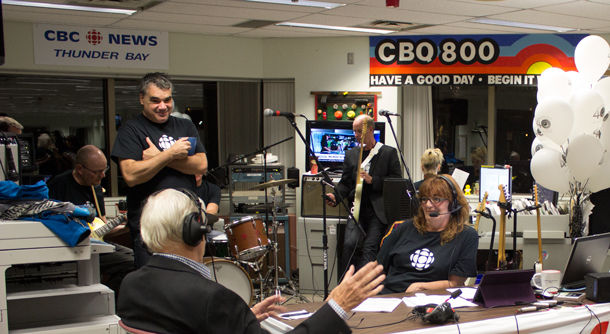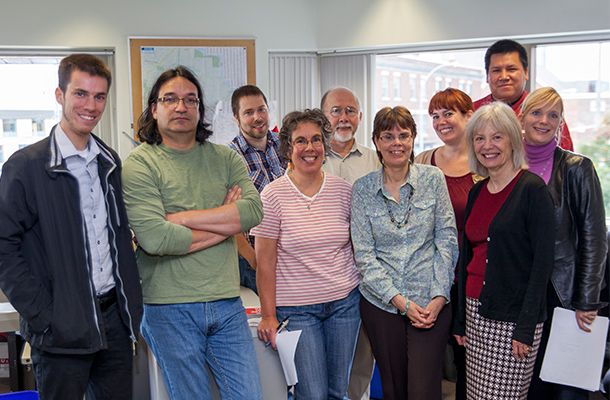
THUNDER BAY – Cuts at the Canadian Broadcasting Corporation are hitting in Thunder Bay. The afternoon radio show will now feature news and updates from Sudbury. Thunder Bay now has Superior Morning with Lisa Laco, and that is mostly it.
Award winning reporter Jody Porter has been told that her job might be at risk. Thunder Bay is losing some of its best reporters.
CBC is undergoing massive changes.
The President of the CBC has issued an open letter to Canadians.
Few will be surprised to read that the public broadcaster is facing tough times. But we are not alone. The entire media ecosystem is in flux. With technology, consumer behaviour and audience expectations changing almost daily, an entire global industry is redefining relevance and shaping a brave new world. Here at home this has meant a media environment increasingly defined by global giants, a Canadian industry controlled by fewer, larger players, and a public broadcaster doing more with less.
In 1936, CBC/Radio-Canada was created to ensure that Canada had a voice on its own airwaves. In today’s digital reality, the need for a lens through which to view and understand both Canada and the world has actually intensified. More than ever, there is a hunger for a space to call our own.
If we believe in public broadcasting, then we need to set it up for success. In today’s dollars, our public funding has dropped by about 40% since 1991. Of 18 major Western countries, Canada ranks third from the bottom in terms of per capita public funding. Each of us pays just $29 a year – that’s 7 cents per day and 60% below the worldwide average of $82 – for 88 radio stations and 27 television stations; three all-digital services; two specialty television news services (ICI RDI and CBC News Network); and other services, including digital music channels. And we deliver our services in two official languages, across six time zones.
All broadcasters are facing a weak advertising market and a changing industry. All signs point to this being the new reality. Print, too, is struggling. We get it. But even though we share challenges with private broadcasters, we are unique in one very important respect: we’re accountable to you, the Canadian public.
We are proud of the role we have played in creating a unique Canadian media space for nearly 80 years now. We offer a Canadian perspective on international news with 23 foreign correspondents beaming uniquely Canadian perspectives back from places like Ukraine, Syria, Washington, and advancing economies around the globe. Here at home, we serve communities, including minority language communities, across the country and ensure that their voices are heard. We serve the North in eight Aboriginal languages. We bring high-value talk formats to millions on radio, we are a point of discovery for emerging Canadian musicians online and our prime-time television schedule showcases Canada to Canadians in ways that others don’t through shows like Heartland, Republic of Doyle, 30 vies, and Unité 9.
If we, as a country, believe in public broadcasting, then we need to support it. We need to give it a mandate that takes into account the complexities of the current media environment, and we provide it the resources to fulfill that mandate over time, not just year over year as is currently the case.
Until then, we will continue to reduce our costs, we won’t stop looking for efficiencies, and we will innovate. We will continue to adapt – not just to changing technologies but, more importantly, to the evolving needs of Canadians. That’s always been our first priority. But now we find ourselves faced with tough choices between investing in the future and maintaining services. Under our current funding formula, we simply cannot do both. And that will mean taking current services and programs away from Canadians to fund those that will come next.
The stakes have never been higher, but making tough choices now opens up huge opportunities for a more dynamic public broadcaster in the future. That’s why we cannot do it alone. If Canadians believe in CBC/Radio-Canada it’s time to join the conversation. How can we ensure that our children have the opportunity to define their own experiences and build their own relationships with CBC/Radio-Canada? What democratic, social and cultural legacies will we leave for future generations? When it comes to reshaping the way we deliver as a public broadcaster, we need to hear what matters to you.
We’re always listening on social media, via Facebook, our corporate blog, Twitter and our programs. On May 5th, we launched the first of a series of conversation starters at www.cbc.radio-canada.ca/future. However you choose to share your thoughts, we want to hear from you. Talk to us.
Hubert T. Lacroix, President and CEO, CBC/Radio-Canada







